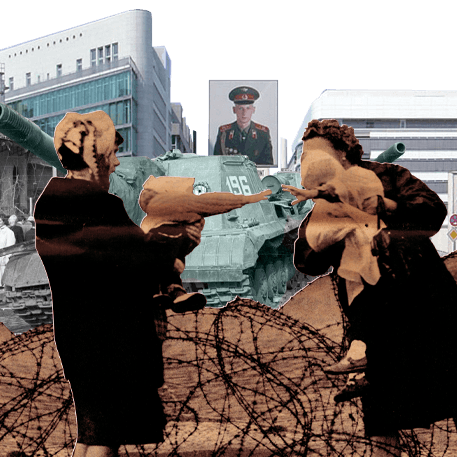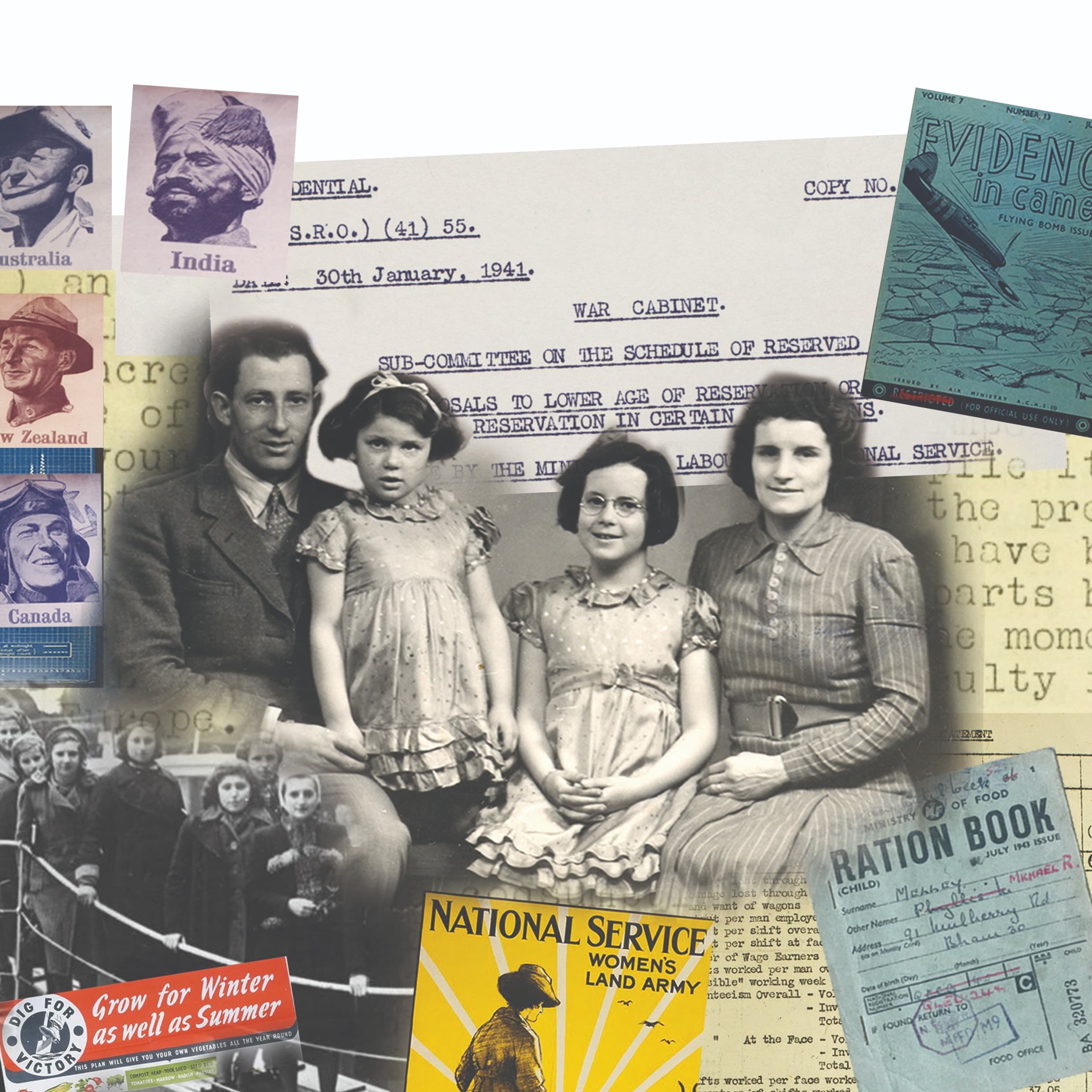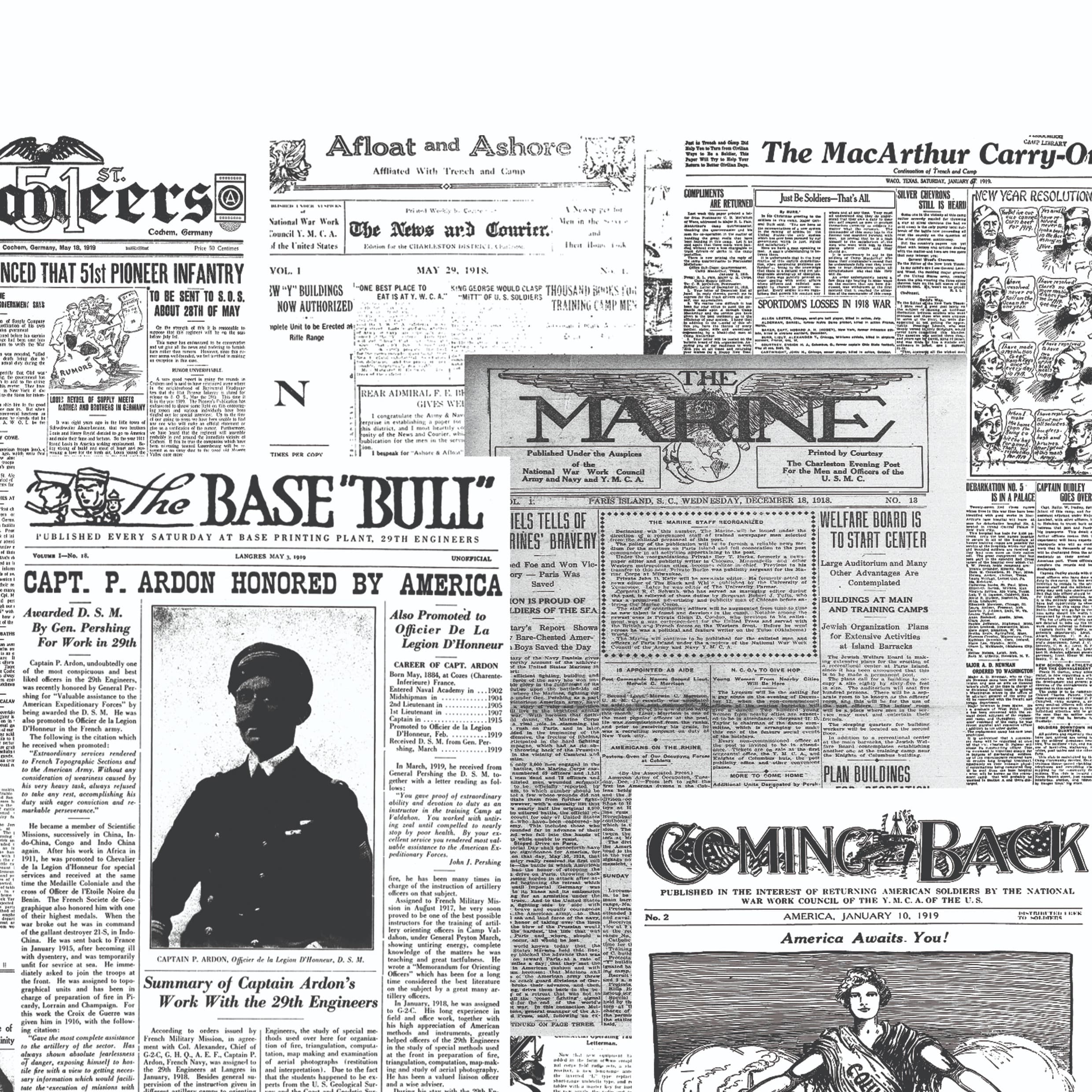With access to declassified files from The National Archives (UK), online for the first time, the collection captures the sweep of Cold War dynamics from Poland to Cuba, from East Berlin to Southeast Asia.
No ordinary historical documents, the files are the raw materials of espionage, resistance, and everyday survival. Broad in scope, the collection shows how the Cold War in Eastern Europe shaped—and was shaped by—world events.
At a glance
>1.4m
pages sourced exclusively from The National Archives (UK)
1946–1982
span of coverage of key events throughout the years of the Cold War
Explore the events and ideas that defined the Cold War era
high-level Foreign Office briefings
legal agreements
underground literature
dissident letters
media surveillance
minutes from secret meetings
ideological battles
cultural exchanges
economic pressures
covert operations
Step behind the Iron Curtain—and into the heart of global Cold War diplomacy
1953-1960
The Khrushchev Thaw and the process of de-Stalinization; the gradual reform and easing of political terror in the Soviet Union; the reassertion of Soviet power across the Eastern Bloc with the formation of the Warsaw Pact; and the military suppression of uprisings in East Germany, Poland, and Hungary.
1961-1966
Events that altered the trajectory of the Cold War; construction of the Berlin Wall; the Cuban Missile crisis; the rise of Leonid Brezhnev and the removal of Nikita Khrushchev as the head of the Soviet Union; and the enactment of drastic reforms within the Soviet Union that culminated in the Sino-Soviet split.
1967-1975
In-depth reporting of the movements for social change in Czechoslovakia (1968) and Poland (1968 and 1970); the subsequent reinstatement of the Soviet model through suppression and military intervention; and the period of détente, which saw the steady easing of tensions between East and West that culminated in Richard Nixon's visit to Moscow in 1975.
1976-1982
The latter Brezhnev years known as the Era of Stagnation, characterized by steady economic decline across Eastern Europe; the Soviet invasion of Afghanistan in 1979; the deepening rift between East and West as Soviet influence expanded in the Middle East, Africa, and South Asia; the non-ratification of SALT II; and the boycott of the 1980 Moscow Olympics, which illustrated the deteriorating relationship between the major powers.
Sample reports
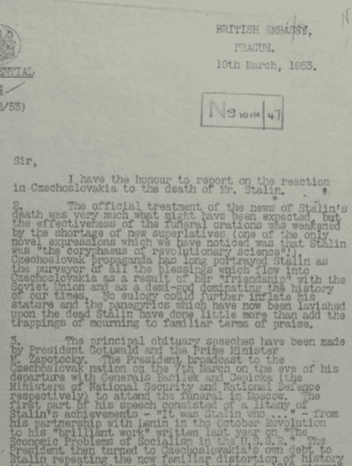
FO 371/106516: The British Ambassador in Moscow reporting on the death of Stalin in 1953, Stalin's funeral, and the infighting to succeed him.
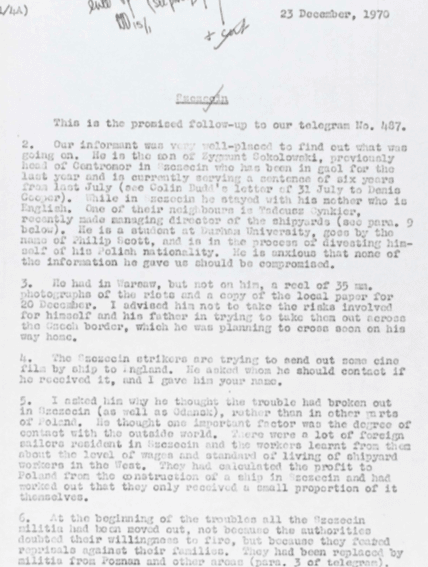
FCO 33/1329: Account of a discussion with a Polish informant about the Polish riots, December 1970.
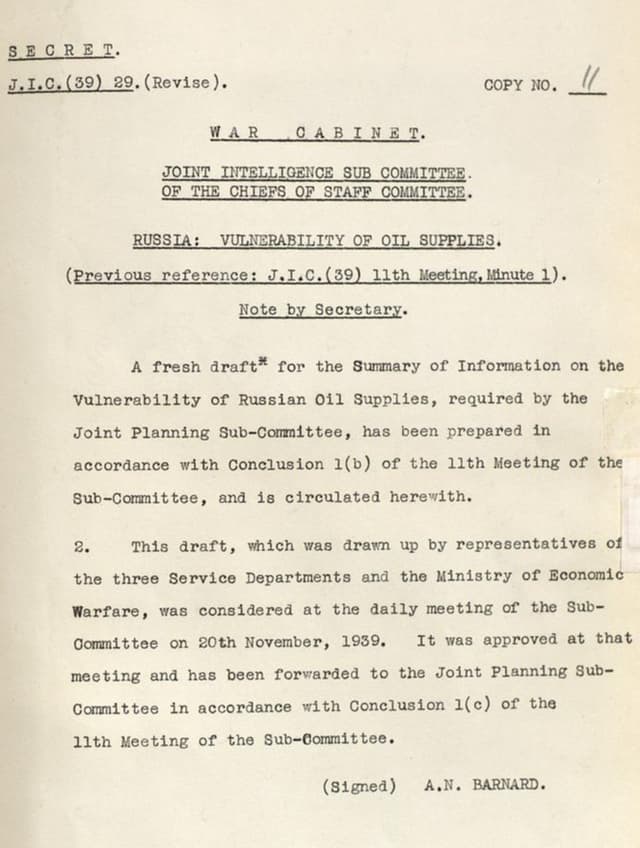
Russia: Vulnerability of Oil Supplies, September, 1939. It details the challenges just a few days before World War II began in the UK.
More sample files
FO 371/122767: Confidential cypher communication from the UK’s Ambassador to the Soviet Union reporting on Khrushchev's Secret Speech, 1956.
FO 371/151626: Account of the Hungarian Revolution by a Communist Party member who opposed the Revolution, 1960.
FO 371/160572: Secret telegrams to the Foreign Office reporting on the building of the Berlin Wall, 1961
FO 371/169185: British Military Government summary of John F. Kennedy's visit to Berlin, 1963.
FO 371/159605: Summary of the public reaction to Yuri Gagarin's space flight, 1961.
FCO 28/4223: Report on the public reaction to the Moscow Olympic Games, 1980.
FCO 28/3996: Margaret Thatcher's message to Brezhnev against the invasion of Afghanistan, 1979.
FCO 33/4353: Dispatch comparing life in the GDR with George Orwell's 1984.
FCO 28/2361: Transcripts of all speeches and statements made by Leonid Brezhnev and Richard Nixon during Brezhnev's official 1973 visit to the United States.
Support for teaching and learning—with scholarly depth and global breadth
Students will want to engage with previously secret primary sources. Most of the material is written in English written as easy-to-read briefings.
Support tools include:
Introductory essays
Specially commissioned essays and lesson plans written by members of the Editorial Board
A timeline of the key events documented in the files
A glossary of key people, including state leaders, leading statesmen, and East European and UK diplomatic personnel, with hyperlinks to relevant search results
A Communist States Fact File that includes glossaries of state names, governing parties, key organizations, and state leadership positions
A Foreign Office Fact File that includes a glossary of political departments and an overview of the UK’s embassy and consulate network in Eastern Europe
"Cold War Eastern Europe is a truly indispensable resource for students and academics alike studying the history of Eastern Europe, Communism and the Cold War."
Our editorial advisors
Want a trial?
Free, 30-day trial offered with training
Flexible pricing options, tailored to your institution's needs
Ask your sales rep about collection packages that offer the best value
